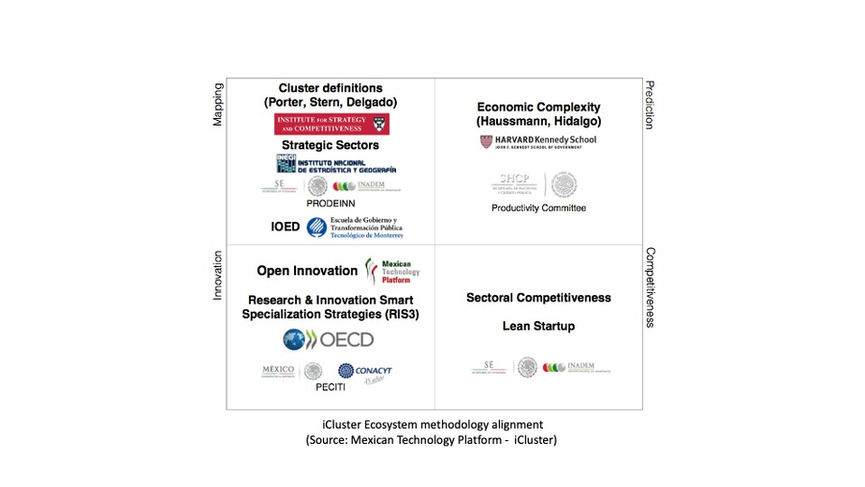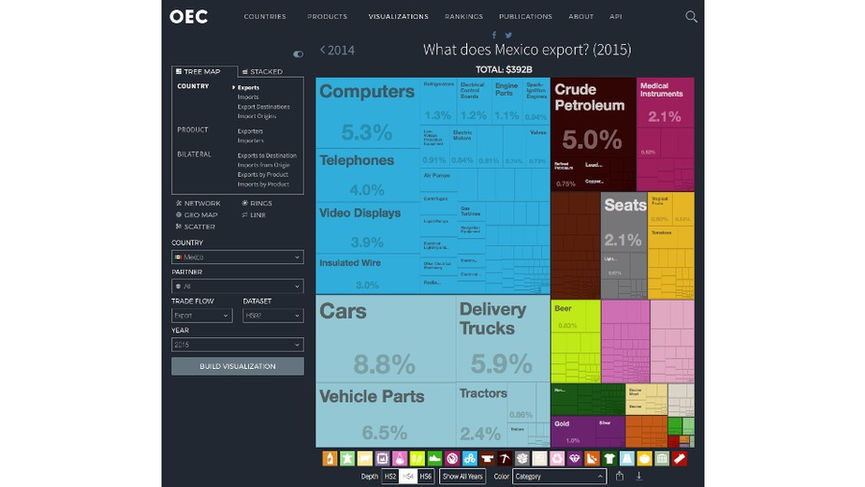Initiatives
In the theory of Economic Complexity, economies develop as they accumulate productive capacities that allow them to produce more sophisticated goods.
-
Productive capacities depend on collective knowledge disseminated in societies
-
Knowledge is basically tacit (not just theoretical)
According to the Growth Lab of the Center for International Development of Harvard university, it is not possible to directly observe the knowledge (the productive capacities) of a society, but it is possible to infer it from its productive structure. The most complex economies are capable of articulating large amounts of knowledge to generate a wide range of products (many of them are characterized by being difficult to manufacture by other economies).
The Atlas of Economic Complexity is a research and data visualization tool that allows exploring global trade flows through time dynamics in the markets and discovering new growth opportunities for the region.
-
Products that demand more capabilities can be manufactured by only a few economies (they are less ubiquitous)
-
Economies with higher productive capacities are more diversified
-
Economies that can manufacture more complicated products make less ubiquitous goods
-
The more capabilities (knowledge) an economy has, the more diversified it will be (variety of products it exports) and the less ubiquitous goods it will manufacture (degree of specialization required by each product); it will be more complex
It puts a country's industrial capacity and knowledge at the core of its growth prospects, where the diversity and complexity of existing capabilities strongly influence how growth occurs.
















